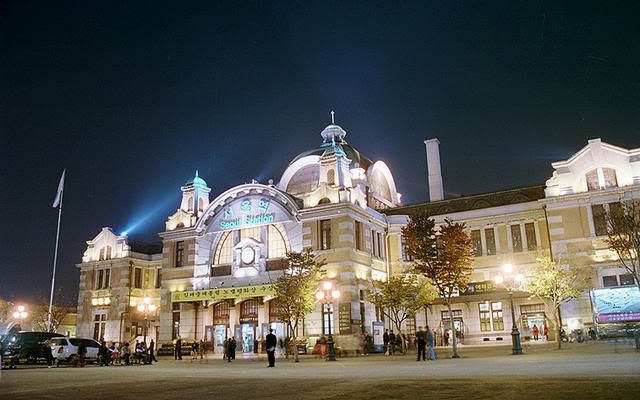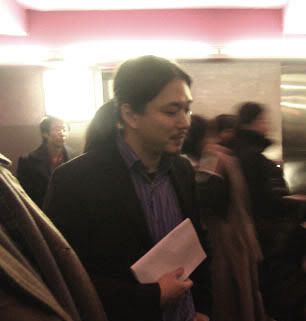In the middle of the immense hall of the brand new Seoul station, stands a short man in an oversized parka. He drags his feet around but his eyes are sharp. As the sun sets, he walks among a crowd of businessmen on the move, on the make, and elegantly-dressed high-heeled women with their manicured hands on their cell phones: it is time for Kim Kun-oh, 41 years old, to watch for the isolated down-and-out who have come to find a bit of warmth in the station. Outside, it’s freezing cold.
Kim Kun-oh is also homeless. Except that he earns a living as a “hunter” of homeless. Every time he finds and introduces one of them to his local neighborhood association, an employment agency that comes to the rescue of the most destitute, he cashes in enough to buy a subway ticket, cigarettes, kimchi, a bowl of instant noodles, some soju.

Kim tries to find men who are neither too old or too damaged. Living in the margins in outdoors Seoul during the wintertime, when temperatures drop to - 20 °C, and threaten to freeze people dead, is indeed quite a challenge. Kim Kun-oh targets the strongest among the poor, the survivors. The mutual aid association proceeds to offer their services as day laborers for construction sites or other labor-intensive work in the underpasses of the city and the underground. Every day, the small organization offers work to 150-odd vagrants.
Kim’s task is to get four or five homeless a day. The station is the best spot, Kim Kun-oh explains. In the summer, it’s easy: they’re all over the place. But in winter, when hell almost freezes over, they arrive in small groups, late in the afternoon, unnoticed. They are fully aware of the discomfort and unease that they inspire in other people. The number of homeless in South Kore is growing at a worrying rate: ten years ago, the 1997 Asian financial crisis, which is often called “the IMF shock” in South Korea, kicked a lot of people out on the street... some of whom were educated but bankrupt businessmen, who found themselves unable to reimburse abysmal credit card debts. And not just in Seoul. In all of Korea. They lost everything, their job, their family, their home. The solitude of these men who have nowhere to go seems overwhelming. Kim Kun-oh says he wants to help them. Catholic missions are admittedly generous but have different objectives.
Furthermore, in Korean churches, there is a widespread, strong sense of defiance against some solidarity networks, suspected of exploiting poverty and desolation.
Regardless, day after day, unhurried, Kim Kun-oh finds the destitute in the countless underground passages in the vicinity of the former Seoul station. There, beneath the entrance of Nangdaemun market, in a tunnel that turns into a squat after dark, dozens of fortysomething homeless (some of them are hardly thirty years old), can be found, living a hand-to-mouth existence, and sleeping on the ice-cold ground in cardboard “coffins”. The youngest are the nouveaux pauvres of a country where the social gap is widening quickly and steadily.
Almost 10 million Koreans (out of a population of 49 million) live under the poverty line, left behind by a nonetheless continuous economic growth (according to an OECD report, the relative poverty rate was about 13% in 2000, i.e. a little more than 6 million people). It is now the country that has the highest suicide rate of all industrialized nations.
These days, groups of squatters pop up even in the upscale areas of the capital, like Songpa or Gangnam.
As the country prepares for a major change of leadership, after a decade of liberal rule (on Wednesday). Kim Kun-oh points the finger at the outgoing president Roh Moo-hyun : “He promised the construction of public housing. He hasn't done anything.”


No comments:
Post a Comment